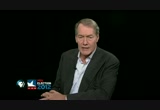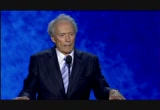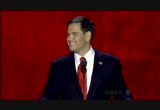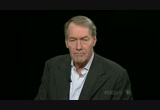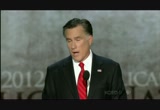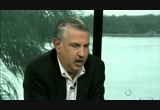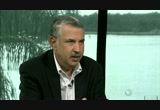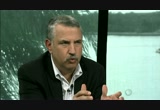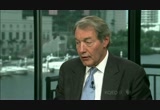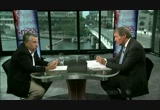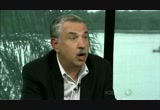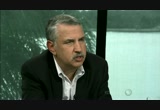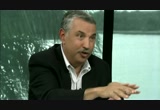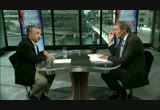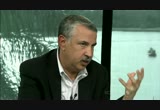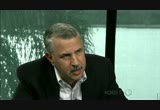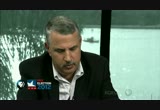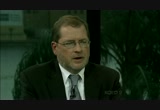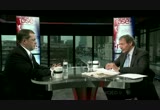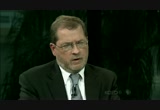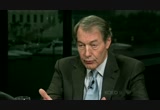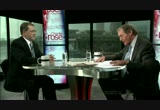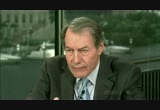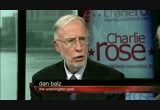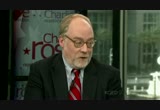tv Charlie Rose PBS September 1, 2012 12:00am-1:00am PDT
12:01 am
captioning sponsored by rose communications this is charlie rose. >> rose: welcome to the program. tonight we look back at the republican national convention which concluded thursday night the most talked about appearance the day after was that of the actor clint eastwood. his remarks seemed not to be scripted and atypical for a political convention >> i think it's maybe time, what do you think, for maybe a businessman. how about that? (cheers and applause) a stellar businessman, quote/unquote, a stillar businessman. and i think it's that time and i
12:02 am
think if you just kind of stepped aside and mr. romney can take over you could still use the plane. (laughter) though maybe a smaller one, not that big gas guzzler that you're driving around when you're going around to colleges and talking about student loans and stuff like that. (laughter) you're an ecological man. why would you want to drive that truck around? (laughter) okay. well, anyway. i'm sorry, i can't do that to myself, either. (laughter) but i'd just like to say something, ladies and gentlemen. something that i think is very important is that you, we... we own this country. (cheers and applause) >> rose: fol rogue eastwood, marco rubio, the senator from florida gave what many consider the best speech of the
12:03 am
convention. >> we're bound together by common values, that family is the most important institution in society. (cheers and applause) and that almighty god is the source of all we have. (cheers and applause) we're special. we're special because we've never made the mistake of believing that we are so smart that we can rely solely on our leaders or on our government. our national motto "in god we trust" reminding us that faith in our creator is the most important american value of them all. (cheers and applause) and we're special because we've
12:04 am
always understood the scriptural admonition that for everyone to whom much is given, from him much will be required. (sparse applause) well, my fellow americans, we are a uniquely blessed people and we have honored those blessings with the enduring example of an exceptional america. >> rose: finally the man of the moment, mitt romney, he in the judgment of most people the day after made one of the best speeches of his political career. >> how many days have you woken up feeling that something really special was happening in america? many of you felt that way on election day four years ago, hope and change had a powerful appeal. but tonight i'd ask a simple question: if you felt that excitement when you voted for barack obama, shouldn't you feel that way now that he's president obama? (applause)
12:05 am
you know there's something wrong with the kind of job he's done as president when the best feeling you had was the say day you voted for him. president obama promised to begin to slow the rise of the oceans. (laughter) and to heal the planet. (laughter) my promise is to help you and your family. (cheers and applause) >> rose: romney left tampa this morning for campaign stops that included louisiana and ohio. we look back now at some of the conversations in tampa that reflect not just on the republican national convention but also larger issues about america and its future. we begin with tom friedman. so here we have a party coming together to talk about how they see the world and nominate a candidate. >> well, one of the things that struck me last night was that
12:06 am
the stories, each of the speakers told about their immigrant experience, whether it was nickie hailey talking about the daughter of immigrant parents, it was others ann romney referring to her welsh... so you know there's a striking contrast between the kind of pride they take coming from immigrant families that started with nothing and built up significant wealth and achievements and the poverty position on immigration... party's position on immigration right now. >> rose: and the nominees during the primary. >> exactly. so there is a tension there, charlie, which they clearly haven't resolved. you know, the question what i felt last night was i found it a little flat myself and what i felt is that is that i have a stronger feeling that mitt romney's renting the republican party and they're kind of renting mitt romney. but kind of organic connection
12:07 am
that you felt of, say, ronald reagan, or even a george h.w. bush or george bush with the party and its base is not there. it's artificial. there's an element of wariness and mistrust on both sides. and you could hear it in the way the different speakers spoke about romney's biography. it was all from a kind of cheat sheet, the same thing. there was very little i thought truly authentic "this is the guy." so there is a tension there. and is romney the last of something? you know, a certain generation of really northern liberal republicans, he's now posing as something more conservative. and is ryan the future or-- and i think this depends on the election-- do the republicans get smashed in the election? looking at the polling now, unlikely, but who knows? do they go through the kind of soul searching that democrats went through in the late '80s
12:08 am
and '90s that give birth to bill clinton and the centrist democrat movement? it will be interesting to watch. >> rose: you think there's a possibility that if the republicans are defeated badly and they say we have to rebuild a different party and that party might look to itself and say are we part of the future or trying to hold the future back. >> that's right. are we a party that really is going to embrace immigration? are we a party that's really going to embrace minorities? are we a party that believes in fiscal responsibility? but where the combination has to be some kind of tax revenue and spending cuts. i think that's the... a lot of that will be determined in this election, not entirely but there clearly is that tension out there. >> rose: where do you think the obama administration is in terms of the handling of this leadership of this nation over the last four years. because there are many people who supported the president enthusiastically last time. >> yeah. >> rose: they're prepared to
12:09 am
look at an alternative if they find that alternative acceptable. >> well, here's where... >> rose: they may not find mitt romney or they may. >> i think it's a good question, charlie, and i was thinking about it last night with ann romney's speech. she was attractive, articulate. but i thought she missed... if i were writing her words as a republican i thought she missed really the key vulnerability of barack obama. i they is the biggest danger for barack obama is that a critical mass of swing voters say the following: barack obama, good guy, wonderful father, he's been great to have had the first african american president but just not up to it. it's a nice guy, don't blame him but i want to try something new. >> rose: right. >> ann romney had a killer line in her speech last night which she completely swallowed and the line was "mitt romney will not fail." to me that whole speech should have been that. had she come out and said "mitt
12:10 am
romney will not fail and i know that because here's what he did in college. i know mitt romney will not fail because here's what he did in his first job. i know mitt romney will not fail because here's how he dealt with his first crisis." she didn't build on it at all. i think the obama people are very relieved. >> rose: i do, too. >> that's the one big vulnerability of the president. >> rose: i totally agree with that. the argument he has to make is "i can succeed where someone else has failed in the judgment of a number of people and in the judgment of perhaps a wining majority in this country." those who are already there before the president did anything and those who have made a judgment about the president. it's not about likability in the end. like isn't good. it's about being able to make the sell i have that the right stuff. >> not just the right stuff. i think this time is different in this sense. i think americans are worried. i think they get we have a problem and. >> rose: and they are prepared
12:11 am
under the right circumstances to go for an alternative. >> exactly. if i think they think three things: one, off plan that's at the scale of the problem, two, it's fair, rich pay more, everybody pays something. it's got to be fair and thirdly that it's aspirational. it's about making america great again not just balancing the budget. and so i think the election is still wide open. >> rose: the success of ronald reagan, a gifted aspirational speaker. and barack obama came along in 2008... >> and what we miss right now in obama is that kind of message. >> rose: why do you think he doesn't have it? >> so i'm waiting... i feel like... i came down here i was toying with the lead of a column saying i came to tampa looking for mitt romney's even a sketch and all i got... etch a sketch and all i got was this lousy t-shirt. i was thinking now we'll see the moment where he tacks to the center. now we haven't heard his speech and maybe that won't come. but you certainly don't get the
12:12 am
sense that that's coming. with own they're clearly made a choice-- which i find baffle baffling because i think he has achievements to run on--. >> rose: include including obamacare. >> you brag to historians about it and how many ads have they taken out selling it? not saying "i did it" but here's how we did it, here's why it will be great. >> rose: they quoted me in a column about an interview with him in which he said the thing i have failed at is narrative. and the narrative is what's got him to the white house. the narrative is begin with him telling a story of the dimension in 2004 and ended with an inaugural speech and many speeches in between. >> i still believe that... i wonder whether obama understands why he was elected. because i don't think it was about mccain's failure or sarah palin i think people believe we need nation building at home now and they really believe... he
12:13 am
had both the vision and the ability to pull us together for that task and he's withdrawn into himself. >> rose: is that the nature of the man? >> he is a... we now know a much more private loaner kind of person. >> rose: he's not a needy person. >> but i think he can turn it on if he wants. and i do not like the campaign he's running. i don't think it's been at all inspiring. i don't think it's made his best case and i'm not surprised that some polls, including cbs, that he's buying. >> rose: what is the romney foreign policy? >> my guess is i don't think he's taken much interest in foreign policy at all. i don't think he has to because it's not part of the campaign. so he's gone to the default position. the default position is the dick cheney wing of the party. then i won't have to worry about anything and i suspect if elected he will pivot to the center. >> rose: what is the dick cheney wing of the party? >> the dick cheney wing of the
12:14 am
party is i would say... i can describe it by its policies. we should intervene somehow in syria. we should stay in afghanistan until we've finished the job and you and i will be long gone. we should be very aggressive in our approach to russia and to china i would argue foreign policy is not an issue in this campaign because barack obama, has been, i think a pretty good foreign policy president. i think he's taken foreign policy off the table. >> rose: i can remind you of columns you've written. >> i have big issues on afghanistan and others but all in all he's kept the country safe. he was idealistic where he could be in libya, he's been prague mat where i can he had to be, china and russia and i think he's sort of split the baby on afghanistan and what not. but he's kept the country safe. that was bush's claim after four years. and i don't think anyone's walking around saying i can't live another day with barack
12:15 am
obama's commander in chief. >> rose: syria, regardless of who's president what should we be doing? >> my view, charlie, is very simple. that serious yah is iraq. it's just the twin sister. it's a ba'athist regime ruling a multiethnic society. iraq had a sunnii minority rulig a shiite majority with kurds and other minorities on the side. syria has a shiite minority ruling a sunni majority with kurds and other minorities. they are mirror images of each other. now, what happened in iraq was we pulled the pin. we removed the dictator at the top and that led to an explosion sand what american did in iraq was the geopolitical equivalent >> rose: we weren't prepared for what would happen after we removed the pin. >> but then we did the geopolitical equivalent of falling on a grenade. we absorbed the entire explosion. we iraqis most of all. i'm saying our presence there prevented it from becoming a
12:16 am
regional conflagration. and we then presided over-- largely because of mistakes originally-- but in many cases it was probably inevitable a civil war as the parties contested the new balance of power. we let them each test each other. they finally reached a point of exhaustion and balance. we then midwife add social contract between them and on the margins with special forces we also hunted down and killed some of the most extreme elements. the product of all of that-- 4700 american lives, a trillion dollars, tens of thousands of iraqis, i don't know how many, but certainly well... very high number, the product of all of that is iraq today i would argue charlie has a 1-10 chance of a decent outcome in the long run. but it's become america was through to midwife this transition. >> rose: problem with the argument is we don't know what would have happened if that... if america had not done that.
12:17 am
>> i would argue... we don't know. but i would argue iraq would look like syria today on steroids. >> rose: and might have somehow acquired nuclear weapons. >> who knows what. >> rose: weapons of mass destruction. >> i'm saying the fact that it played out the way it did, that iraq does... is resolving its problems today as we speak today by more politics than not. >> rose: it would have come to iraq? >> oh, it would have come to iraq. but i think it would have looked a lot more like syria today. >> rose: translate where syria is today. >> so let's go to syria. the problem is everyone wants to say we must do something and i... i'd love to do something. but my gut tells me that the only thing to be done is to... somebody has to take over the country, okay? somebody's got to provide a midwifing role to referee this new balance of power. >> rose: nobody wants the united states to do that. >> no, i know that! that's why there's a it will bit
12:18 am
of disingenuousness of people saying "what must we do?" a no-fly zone. okay, what happens when the syrians shoot at the no-fly zone. what happens when the russians get involved in it's a problem from hell. it'ser the to believe see what's going on. >> is there any answer in terms of somehow a group of countries getting together, neighbors and others, including iran even though that would be very difficult for everybody to come to some kind so solutions because they have the russians, iranians, americans. >> people would have... >>. >> rose: and arabs. >> and iraq. to the extent that it worked it worked because there was one power there. can you imagine a committee of the iranians, the russians, the chinese. and that's my dilemma with it. i don't know how it's going to end. i think this could burn on in different forms for a long time. charlie, step back, what are we seeing? we're seeing two huge political orders crumbling at once. one is called the european union
12:19 am
where the supra national state has failed. and the other is called the arab world where the nation state in certain cases... >> rose: or the monetary union has failed. >> the monetary union has failed and therefore the nation state has failed. so they're both crumbling at the same time. at a time when we're not only more interconnected but more interdependent than before. >> rose: it has consequences for china and the united states. >> absolutely. both do. china for energy in particular, america obviously... >> rose: and they were a market. >> yeah. so i don't have a simple solution. i don't know what to do. i know what i think would be required to basically bring order to syria and i also know no one wants to do it. >> and what you long part for parts of both leaders who want to be president is for some sense of a vision how to engage these two huge problems and what would you do and what would you do different than what is being done. >> let me talk about syria and this is a flash to the wider
12:20 am
arab spring one of my favorite movies is the movie "invictus" about nelson mandela. >> rose: played brilliantly by morgan free man. >> and the springboks rugby team in south africa and how members of the african national congress wanted to change the name, the uniforms, everything when mandela took over and my favorite line in the movie, he turns to them, his sinister of sports or whoever it was, he was making this demand and he says "no, we must not do that. we must surprise them. we must surprise the white minority by basically our... by not doing that what's missing to me in the whole arab awakening and the leadership in general when was the last time somebody surprised you, charlie? when was the last time you called your producers and said "i don't care what it takes, get him or her on the show." did you see that?
12:21 am
did you see the risks they took? so in the arab world today you have no midwife in syria and no mandela when you've got no mandela or midwife you'll have a very difficult situation. and we're dealing at the end of the day we also... you say what should we do? what should they do? we're dealing here with the oldest civil war on the planet between sunnis and shiites over who is the proper heir to the prophet home fled the 7th century. is that my responsibility? >> rose: i do think the united states has a leadership role and does have... >> i'm all for it. >> rose: but it's not that you have to do everything but you can can b a catalyst for people doing the right thing. >> all i'm saying is we shouldn't be the only ones asking that question. what responsibility do they have to say why are we fighting each other? you've worked in the arab world, charlie, we both have shiite and sunni friends. i can't tell the difference between anybody. probably the problem they have with protestants and catholics
12:22 am
and jews. what is this about that people can't live together? at a certain point, they have a responsibility, too, that's all i'm saying. we must help. i'm all for it. >> rose: knowing how strongly you feel and it's been a central part of what you've been writing about since you wrote "the world is flat" or whatever the title of the book was. >> rose: >> "the world is flat." >> rose: after 9/11 you came back and found out that technology had changed everything and you have been the person that is most articulate about entrepreneurs, how it can build societies and get people a future. could mitt romney make an argument on that man. i'm more in tune with those ideas that you have tan other guy. >> gotta go now, charlie. (laughter) >> rose: that's a hard question. >> it's a very hard question for me because i do think in terms of things that float my boat i
12:23 am
love being with inventors and innovators and people trying to change the world and leverage technology to do good things. and i think that does probably resonate more with romney than it does with barack obama. i think other things are important. >> rose: that's essentially his argument. >> but at the same time you know what bothered me here last night... because it's all related, you know? so they had... "we built it." playing off on obama's statement >> rose: they didn't build it. >> right, of course he was talking about highways, roads and infrastructure. >> rose: what's central for entrepreneurs to have to be be able to move... >> exactly. so i give obama a lot of credit for that. his investments in innovation, in technology, we're one day after... again, barack obama will never taken a ad out on this and i think i'm the only columnist in this side of... in this hemisphere who wrote a column about it but barack obama put in place new mileage
12:24 am
standards that were required by the 2025 the doubling basically of mileage of american... >> rose: more fuel efficient cars. >> 54 miles per gallon. charlie, that's a huge deal! that's going to drive incredible innovation in the auto industry. so that's why there's a lot of ways to get at those things... basically i see as obama's the guy who's interesting in the enabling environment, romney's the guy interested in the business... >> rose: but back to my central point, when you listen to a lot of people like paul ryan they do say that... they sing the song. up leash the unknow separateive power of america. >> and that resonates with me and a lot of americans and it's part of obama's voice that has been missing for me from the very beginning. >> rose: one of the baffling things for me is how he has allowed-- the president-- other people to define him. because the most important thing you need to do is create the
12:25 am
narrative that defines who you are rather than allow... >> sure, talk about health care. obama is being called a euro socialist. no, no, no, no. socialism in health care is what we have now. i get sick, i have no health care, i just walk down to that tampa hospital right there... >> rose: to the emergency room. >> they treat me and they basically divide up the cost on everyone who has health insurance. that's called socialism. when what obama is saying is i want everyone to have to buy insurance and we'll subsidize people who can't. that's called capitalism. now, how can you by the guy who is promoting basically a market-based solution to this problem and you're carrying the cross of the euro social... you've got to work at that, charlie. you have to work at being defined that way. >> rose: great to have you. >> we were just getting going! (laughs) >> rose: i want to make sure we can include we what we've already got. tom friedman, columnist in for the "new york times." also this week we heard from
12:26 am
grover norquist the author of "the tax pledge." he has had an enormous influence on republicans in the congress. what do you hope to see come out of this convention? >> i hope that both ryan, paul ryan, and governor romney will introduce themselves as men, as individuals, as family guys because a lot of people may be familiar with their general politics but they also hear just the 30-second ads. so swing voters, guys who are still making up their mind who romney is as a person and the same thing with ryan, i think that's important. the second piece is to make sure people understand the ryan plan, the welfare reform, the medicare reforms, so that people have a general sense that they're comfortable with those, that they're not scary, that they will work and if they can do those two things, both of which
12:27 am
are global, that's a good thing. >> rose: with respect to governor romney, do you believe somehow that the man he is is not being perceived by america? not withstanding the fact that he's been campaigning across this country for a fair number of months? >> if you sat through a half hour speech of his you probably got it. but most americans haven't. they get soundbites from television and they haven't had the 15-minute conversation. >> rose: he's been all over doing 15-minute conversations, especially since he became a nominee. >> i'm talking about the non-aligned voter, the independent voter, the person who doesn't follow politics. i, for instance, don't follow professional supports consistent if you would ask me i would give you odd answers. swing voters tend to follow politics in the same way. they vaguely know what's going on. they have to make a decision in november but that's not now. and so the convention is a time for someone to say i know i need
12:28 am
to focus on this, i haven't, i do don't this all day, it's not what my life is about, i will now focus, there's a convention, i'll watch the speeches. so there's a different audience for convention than debates where the base is listening. >> rose: what's the difference in romney's view of the economy, of budgeting, of taxes and the view that congressman ryan has put out there as his own as a budget plan for house republicans? >> they're largely moving in the same direction, you want to reform government to make it less expensive, less intrusive. you want to reform taxes so that rates are lower, the base is broader, it's simpler, there's fewer pages in the code and it has less of a drag on the economy. for both ryan and romney they're pro-growth reaganites jack kemp pro-growth politicians that focus on growing the economy as
12:29 am
the number one agenda item. >> rose: but interestingly, when you talk about growth people who are primarily interested in growth worry about cutting spending too much. it's the austerity versus growth debate. >> that's what you need to do tax reform at the same time. it's what reagan did with tax reform early on, reducing marginal tax rates and then '86 tax reform. the necessary part of that is to keep spending from spiraling out of control and particularly from allowing entitlements-- as the electorate ages-- from eating up more and more of the general economy. >> rose: as you know, the perception is that you do not want to compromise. and you don't want people who have signed the pledge to compromise and what's necessary is compromise. alan simpson has articulated this that he doesn't think anybody who doesn't want to compromise must have rocks in their brain. >> well, depends what you mean by compromise. i'm in favor of compromising towards liberty. i'm in favor of all steps towards liberty, fast or slow.
12:30 am
we got a $2.5 trillion spending cut agreed out of last year's budget. we wanted the ryan plan which is a six-year... $6 trillion reduction in spending over a decade. we only got half of what we wanted but spending is coming down as a result of that agreement, no taxes were raised. there was a compromise towards liberty. >> rose: the compromise that the speaker of the house was prepared to make in negotiations with the president, a compromise you could have lived with because he was prepared to deal with the revenue side. >> well, i'm in favor of more revenue. if the economy grows faster. if the economy grows at 3% a year instead 206%, that's $2.5 trillion in more revenue for the government because of economic problems snoochlt up but the the economy grows everybody knows you have more revenue >> yes but some people tend to not count that as revenue. the obama administration didn't want to count those dollars as revenue for purposes of an agreement. >> rose: but you're saying if john boehner said he was
12:31 am
prepared to act on the revenue side, even though it was hard for him, you would have supported anymore that compromise. >> i've talked to boehner about this. the revenue he put on the table was always from growth, never from tax increases. >> rose: how about reduction of deductions? >> if it's a... i'm in favor of reducing deductions and credits and taking rates down just as reagan did in '86. if you take deductions and credits and get rid of them and take that money and spend it you've done two things. you've undermine spending restraint because you've spent more money and you've undermined tax reform because you have gotten rid of the deductions and credits we intend to spend to reduce rates. so raising taxes undermines fundamental tax reform and makes it impossible to do and undermines our effort to rein in spending. so that's a big no-no because it does twice as much damage. one, it undermines spending restraint, two, makes it difficult to have tax reform.
12:32 am
>> you could never bring yourself to support simpson-bowles. >> simpson-bowles... the only numbers in simpson-bowles that are clear apart from the page numbers are that it wants to take 18.5% of g.d.p., present rate of full employment tax up to 21%. that over the next ten years is a $5 trillion tax increase. $5 trillion tax increase. the spending restraint in simpson-bowles is wren in haiku. it's not terribly clear. >> rose: but it was clear enough for some republicans to support. and the objection of congressman ryan supporting it was limited. >> congressman ryan... >> rose: he supported a lot of it. >> oh, i support all of the conversation about the spending cuts in simpson-bowles. >> rose: and the tax reforms you supportd? >> as long as the rates reduced so that it's revenue neutral. but they wanted to have tax reform that would be a trojan horse for $5 trillion in higher taxes. that was a big no-no. that was not going anywhere and
12:33 am
the reason why they've never written simpson-bowles down in legislative language is that it would become clear to republicans and the american people how big a tax increase it is and even the tiny spend regular strant they're talking about no democrat would vote for it. >> rose: are you clear on the terms of elimination of deductions that congressman ryan is in favor of? has he laid it out clearly for you? >> no. what he's laid out... >> rose: elimination of deductions to increase the revenue. >> what ryan wants to do in the ryan plan is to have a revenue neutral tax reform. so it's not a tax increase, it's revenue neutral. rates come down to 25 corporate individual and you broaden the base to have it be revenue neutral. it's not a net tax increase, it's revenue neutral. just like reagan did in '86. that's a good tax reform. >> rose: people are looking at formulas in terms of deficit and percentage of this and growth as a percentage of this and one thing is the question of revenues as a percentage of g.d.p.
12:34 am
is there a number you like? >> lower is a good number. >> rose: well, i know that, but that's not a number, that's a trend. >> no, because the total cost of government, the dead weight cost of government is total government spending. what you take and what you borrowed a up to what you're spending. i'm much more interested in spending... bringing spending down, taxes you want to keep low so you don't overspend. >> rose: tell me how you see the possibility of going off the fiscal cliff? >> well, there are two challenges in january 1 of next year. >> rose: the bush tax cuts being one? >> there's a series of tax reductions that end. some of them are bush, some of them predate bush. the afternoon dee tax credit, all of these things. natoal in the first year to $500 billion. so if nothing happens, if obama was reelected or the democrats have the senate they could just sit on their hands and without passing any legislation $500
12:35 am
billion tax increase. that would be very bad for the economy and the good news is that we came to just that crisis to two years ago after the 2010 election and obama and the democrats in the house and senate agreed to a two-year extension of all the tax cuts plus some that obama added in, expensing. >> rose: so now they have reckoning again. >> again. i believe that at this point the republicans will have the house and the senate secure and the presidency in which case you then pass the ryan/romney approach, no tax increase necessary, real spending reform like the welfare reform that... >> rose: and does the ryan budget include the $719 billion cut in medicare? now? does it include it now. >> now? no. one of the versions that they passed was built on top of obama's budget projections and therefore would have included that number. but he's clear now that romney
12:36 am
and he are for repealing obamacare which includes that transfer of the $700 billion from medicare from obamacare. >> rose: was it a little bit disingenuous to attack the president for reduction in medicare when at the same time the romney budget had a reduction in medicare? >> since they were using his baseline at some point how much do you take the whole thing apart? they're working off of obama's baseline since he, ryan, has voted more than a dozen times to repeal the whole thing and as have all the republicans. they're clear that they reject that. >> rose: is paul ryan the ideal candidate for you? he has it all. i mean, the one challenge for republicans is there's an embarrassment of riches on the bench. you have scott walker who has done back flips in the state of wisconsin turning that state around economically, reforming all sorts of parts of government including getting rid of tenure
12:37 am
and dealing with public sector unions. bobby jindal who's an expert on all sorts of things starting with health care, governor of louisiana. rick scott in florida who's turned this state around and made some very real steps forward. you've got half a dozen governors. chris christie. they're doing very, very interesting things. john kasich in ohio. there was such a number of people that you could have chosen that it's very interesting. >> rose: because they pass what test for you? >> >> seriousness about reforming the structure of government to make it more accountable and more transparent. >> rose: is that reducing government? i know you're famous far quote in which you said you'd like the see the government reduced so you could fit it into a bathtub and drown it. >> to make it very small. but the full quote, in addition, says, look, the real goal as opposed to the cute comment is to reduce... >> rose: by you. >> yeah, by me. that the real goal is to drop
12:38 am
the cost of government in half as a percentage of the economy over a 25-year period. that doesn't require any... >> rose: what does it require? to reduce the size of government. >> as a percentage of the economy you want to grow the economy. >> rose: so the economy gets larger. >> gets bigger so that the same size government is a smaller burden. >> rose: of the overall... >> of the overall. but then you want to reform government. look what bill clinton signed on welfare reform. he block granted aid to families with dependent children in '96 and dropped the cost of number of people on welfare about in half since then. a lot of people got off dependency. that was a reform which led to less spending. it didn't come and do some thing you know, cut everything 10%. i'm much more interested in reforming government programs to create more competition. i couldn't want to cut the post office. i wouldn't want to open it up to competition. >> rose: who did more for the
12:39 am
government in terms of an attitude about government and also with the economy? the eight years of bill clinton or the eight years of george bush 43? >> clinton years were two years where clinton had democratic congress and six years with a republican congress in opposition. >> rose: they came in '94. >> right, '94 to 2000. the two years were a period in not much in the way of growth and in any sense, the six years were a period of growth. when you had a republican congress saying no to his spending. the challenge for bush was that there were three bush administrations, first two years democrats ran the senate, middle four years you had republican house senate and presidency, those are the four years of economic growth because of the 2003 supply-side tax cuts. then 2007 democrats take the house and senate spending starts going all the bush's years spending went up too much but in the last two years really too much. >> rose: one of the arguments
12:40 am
that's interesting about obama and the criticism of the president is the stimulus program and it didn't do... didn't create growth, didn't create jobs, didn't create... they argue that it did. >> yeah. >> rose: the other central part is they say they had to compromise on the stimulus because they couldn't get more through the legislature, through congress and that the congress demanded the treatment of tax that it demanded. that that was a republican argument that they had to adhere to in order to get the stimulus through congress. >> well, in the first two years remember they had a supermajority in the house and up to 60 votes in the senate. he passed most of his legislation, obamacare was all passed by democrats, no republican votes >> i'm talking about the stimulus bill, not obamacare. >> the stimulus bill on the house side there were no republican votes for it, they didn't even talk to the republicans about that. they picked up two republican votes, specter and somebody from
12:41 am
maine. but otherwise it was an all democrat proposal. >> do you believe that if president obama is reelected there is possible grand bargain to be made if there is a republican controlled house and senate? >> it's a good question. i tend not to think so. he hasn't been interested. when he had the upper hand with an overwhelming house senate and presidency he could have gone to the republicans and brought... and maybe made the case far grand bargain. he didn't do that. >> rose: so therefore you don't think he'll make the case? because i thought that was what the negotiations were with john boehner, a grand bargain. i thought that's what what was happening in the senate with the gang of six, looking for a grand bargain between republicans and democrats. >> look, they were and as you know the gang of six was there and they met for eight months and they never wrote anything down because democrats were never willing to put anything on the table on spending and they
12:42 am
wanted at least a trillion and a half dollars on higher taxes. >> rose: and that comes from one of the arguments. it was the democrats who say it was not that because house republicans were not willing to compromise. in the end because of you and the pledge and how they saw themselves and their country they were not willing to compromise. >> well, raising taxes for a republican is not compromising, it's betraying principle. if somebody said would you like to... >> rose: suppose that the president would say, look, cutting entitlements is not a compromise because it's a principle. i believe that you cannot take action that will be detrimental to the health care or the well-being of... whatever group of americans. >> the challenge... >> rose: would you say "we understand your principle, mr. president?" >> spending other people's money is not a matter of principle. >> well, but they would say spending other people's money in the interest of a certain kind of safety net and other aspects is very much a principle.
12:43 am
>> and what the republicans are talking about doing with the ryan plan and others is to take the lessons learned from the clinton welfare reform and apply those by block granting and reducing strings to medicaid and food stamps and housing programs and jobs programs to save a great deal of money while giving a lot more flexibility. that doesn't damage anybody as we know from welfare reform, it made people better off and save money. these are the sorts of reforms that clinton has shown worked, obama hated it then. he hates it now when republicans are taking the clinton proposal and saying let's expand it to other parts of government. >> rose: well, the republicans... >> rose: >> he's to the left. >> rose: well, correct me if i'm wrong, you may know more about this than i do, likely do, but that the so-called premium aspect of health care reform that is recommended by the paul ryan budget came from some elements of the clinton administration's consideration
12:44 am
of health care reform. >> yeah, it came out of something where he, ryan, and alice rivlin, who was clinton's budget person came up with a pro peaseal. >> rose: ideas they thought and talked about when clinton was trying to create health care reform. >> look, clinton might have had some grand bargain and the monica lewinsky thing blew everything up and he had to go hard left to protect himself. >> rose: back to the grand bargain. suppose it's not the president reelected and mitt romney reelected and off republican and democratic congress which would please you. >> then we'll have a grand bargain. >> rose: which will be? >> the ryan plan largely. >> rose: the president calls it social darwinisim. >> that's kind of... from a guy who was going to be the bipartisan non-name caller he does an awful lot of name calling and blame shifting and he plays nasty politics for a guy who was going to bring us all together and not be rather... i mean, all he does is whine about bush. i don't remember bush whining about clinton. >> rose: your idea of a grand bargain is simply the ryan plan.
12:45 am
that's a bit like saying... you know, for somebody to say "look, my idea of is ar gain is what's mine is mine and what's yours is negotiable." right? >> two things, we want to reduce government spending in a ration rational, reasonable, thoughtful way. that's the ryan plan on entitlement reform. and we want to have stronger economic growth through lower taxes. that's what the republicans want to do and it's... >> rose: do you believe that will this president is the prepared to for entitlement reform if he's reelected? >> no, because he was president for four years and made no effort to do it then. >> rose: well, but you've watched presidents who didn't do things in the first four years that they were able to do later commit to. for example, your own president you worked hard for, bush 43 promised as you have said social security reform, immigration reform, it didn't happen. >> neither ended up happening.
12:46 am
social security can only be done with 60 votes. the rest of... everything else in the budget can be done with 51 votes. social security is the one thing that's set aside. i think there's a tremendous missed opportunity on immigration reform. comprehensive immigration reform that should have fol hold immediately after september 11 as part of both sound immigration policy and security. >> what are the circumstances that would cause you a to say "i do appreciate what happens if we go off a fiscal cliff. it would send this economy to a deeper place than it's ever been we have to make a bargain and the bargain means we have to put everything on the table including revenue." what circumstance to avoid would bring you that position? >> well, since the threat to the american economy are these massive tax increases what we need to do is end those by not allowing tax reductions to lapse. not allowing the a.m.t. to hit
12:47 am
31 million families, which is what it does in january. we need to take the status quo, kick it out a year so you can reform taxes without the $500 billion tax increase next year. we need to not raise taxes and reduce spending. what the democrats want to do is two bad things, let's not reduce spending, let's keep spending, and let's raise taxes. >> rose: that's not what they say. they say what we want to do is look at this-- and republicans, too, senator coburn and others are saying we have to look at the spending side and the revenue side and and you senator coburn are at odds over this. >> correct because he misunderstand what is the problem is. >> rose: he misunderstands the problem? the man who served in the senate and was on the simpson-bowles commission and has been a proponent of debt reduction? >> he thinks the problem is the deficit. the problem is total spending so he thinks raising taxes helps solve the problem.
12:48 am
he didn't pay attention in '82... >> rose: he thinks compromise is part of solving the problem. he thinks doing something is... >> rose: >> i'm willing to cut taxes more slowly. i'm willing to sput spending more slowly. i'm willing to compromise in the direction of liberty. >> rose: are you aware that seems unreasonable? you're saying "i'm willing to do the things i want to do slower and that's how i want to compromise. i do not what to compromise in terms of what you believe is your own analysis of the party." peteror sdag talking about you says "if you take everything out ryan is assuming and look at his corporate proposals, concrete proposals, his budget is not fessally conservative without the magical reductions in medicaid, other spending and tax breaks his plan would expand the deficit in 2040, not reduce it." peter orszag. >> he just said all of the welfare reform proposals on med did that are patterns after clinton's, take those out of the consideration then you have a problem. yeah, that's true. but that's imagining... what the
12:49 am
obama people have done in some cases they say we assume the following things are what ryan means or romney means. we thut them into their proposal and their proposal is bad. that's not honest or honorable or serious. >> rose: let me talk a bit about you and other things other than taxes and budgets. tolerance. eric cantor has talked to me about interesting ideas he has about tolerance. tell me what it is that you believe this country has to do. it is known and your wife is muslim. >> there are two things. one is i think that one of the things that makes sense is successful and great is that we're not europe. we're not some ethnic group. we're not all one religion. we're not all the guys on this side of the river are different than the guys on the other side of the river. we're not a bunch of guys sitting on a piece of territory that define who we are. we're a people of the book, the constitution.
12:50 am
that's who we are. we believe in liberty. we believe in limited government. we believe that everybody should be free. and that includes-- the constitution is clear on this-- religious liberty. people of all faiths and the early founders were very serious about speaking to the jewish minority and to other religious minorities to say, look, you got nothing to worry about here. we're about religious liberty. >> rose: go ahead. >> now the country doesn't always lived up to. that every new group when the roman catholics were in, romanism, rum and rebellion, that kind of nonsense was out there. the mormon church was rather viciously persecuted. we've been down the road many times. that's why i'm an optimist. every new religious group that comes into the country got hazed mistreated at first, dealt with suspicion, people then worried about immigrants, the germans started sneaking into pennsylvania in the 1700s. they've always been these concerns.
12:51 am
so i know we'll get through it. that doesn't make it pleasant. >> rose: grover norquist, thank you. good to have you on the program. so as the candidates and delegates leave tampa, we leave you with some of the people who sat at our table and how they characterized the challenge for mitt romney. >> the story is mitt romney. we call this the republican national convention. it's the mitt romney convention, as all conventions are. they're all about the no, ma'am nigh and what we learn about the nominee and what the nominee says about himself. so everything builds to thursday night and his speech and ann romney's speech was part of that chris christie's speech was a part of that, paul ryan is a part of that. ultimately it comes down to what mitt romney does for himself. >> one thing that surprises me walking around tampa is of course mitt romney is the story but there's another story going on and that's paul ryan who we heard from tonight. just the excitement about that candidate is palpable when you go around the delegations.
12:52 am
i don't know if it's because of the weaknesses of mitt romney or the strengths of paul ryan but there's an element of dissatisfaction or lack of excitement about the top of the tip i can so they shine a spotlight on a vice presidential nominee. >> with paul ryan they've picked a very attractive guy. i like paul ryan, maybe i'll vote for him as president one day. i was for a little less flashy a choice because the new shiney object is medicare and generally funding on the medicare train is a land war in asia for us. there's some consultants who disagree. some people say this is going to big election, we'll go on the democratic turf and beat them. it thereby first time in my 28 year career running elections i've seen that and i'm hoping i'm wrong. under the old rule book there's a lot of risk here. >> rose: you have been the person who's been most articulate about entrepreneurship and how it can build societies and give people a future. could mitt romney make an argument "i'm that man. i'm more in tune with those ideas that you have than the
12:53 am
other guy." >> gotta go now, charlie lachlt laugh (laughs) >> rose: it's a hard question. >> it's a very hard question for me because i do think in terms of things that float my boat i love being with inventors and innovators and people are trying to change the world and leverage technology to do good things. and i think that does probably resonate more with romney than barack obama. but at the same time what bothered me here last night, it's all related so they had this rebuilt it, playing off on obama's statement... >> rose: they didn't build it. >> right, of course he was talking about highways, roads and infrastructure. >> rose: what's essential for entrepreneurs to have. >> exactly so i give obama a lot of credit for that. his investments in the
12:54 am
innovation, in technology, look, we're one day after... again, barack obama will never taken a ad out in this and i think i'm the only columnist in this side of... in this hemisphere who wrote a column about it but barack obama put in place new mileage standards that will require by the 2025 the doubling basically of mileage... >> rose: more fuel efficient cars. >> 54 miles per gallon. that's a huge deal! that's going to drive incredible innovation. >> to know him as an individual he's easy to spend time with, interesting, interested in you i think that has not been the impression people have gotten through the filter it's why i think own a ann's speech last night was powerful and important in terms of presenting that side of him outside of the filter. i think you'll see more statements like that tonight from paul ryan and pawlenty and other speakers and certainly governor romney's speech tomorrow night where he will get
12:55 am
to talk in an unfiltered way to the american public in a long format is tremendously important with that but now the people are concentrating on the race they will get to know the real mitt romney as the person who should be president. >> rose: i'm charlie rose. thank you for joining us this week. see you next week from charlotte and the democrats. captioning sponsored by rose communications captioned by media access group at wgbh access.wgbh.org
124 Views
IN COLLECTIONS
KQED (PBS) Television Archive
Television Archive  Television Archive News Search Service
Television Archive News Search Service  The Chin Grimes TV News Archive
The Chin Grimes TV News Archive 
Uploaded by TV Archive on

 Live Music Archive
Live Music Archive Librivox Free Audio
Librivox Free Audio Metropolitan Museum
Metropolitan Museum Cleveland Museum of Art
Cleveland Museum of Art Internet Arcade
Internet Arcade Console Living Room
Console Living Room Books to Borrow
Books to Borrow Open Library
Open Library TV News
TV News Understanding 9/11
Understanding 9/11
